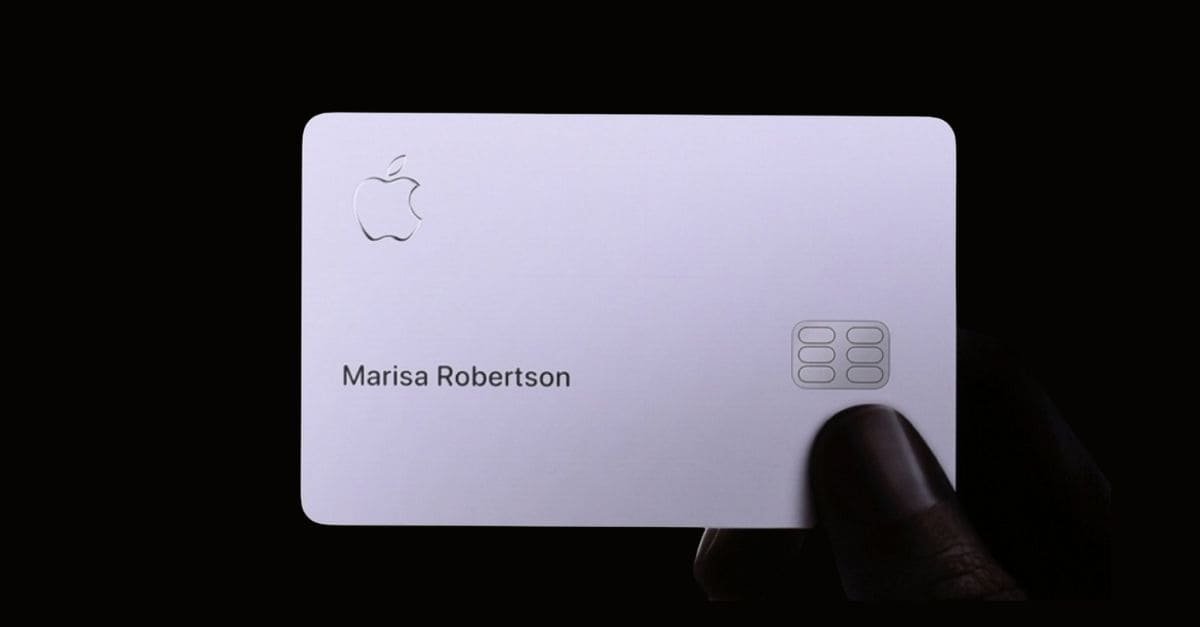
Are you an Apple Card user? Wondering how your credit activity is being reported to the credit bureaus? Establishing and building credit is essential for financial success. Understanding the reporting process can help you make informed decisions and maintain a healthy credit score.
Apple Card, Apple’s credit card offering, has gained popularity for its unique features and seamless integration with Apple devices. But when does Apple Card report your credit activity to the major credit bureaus?
Learning the reporting timeline can help you better gauge the impact of your credit habits and ensure they positively influence your creditworthiness. Join us as we explore the reporting process and show how Apple Card keeps your credit history in check.
Whether you’re considering getting an Apple Card or already have one, this guide will provide the insights you need to understand how Apple Card reports to credit bureaus. Let’s dive in!
Table of Contents
How Credit Reporting Works?
Credit reporting is a crucial part of the financial system that allows lenders to assess the risk of extending credit to individuals. Your payment behavior and utilization are reported to credit bureaus when you engage in credit-related activities, such as taking out a loan or using a credit card like Apple.
These credit bureaus, also known as credit reporting agencies, collect and maintain this information in your credit report, which lenders then use to make informed decisions about approving your credit applications.
The major credit bureaus, Equifax, Experian, and TransUnion, gather data from various sources, including financial institutions, lenders, and credit card companies. This data includes your credit accounts, payment history, balances, and credit limits. Apple Card is no exception.
Related: How to Request Credit Limit Increase In Apple Card
The credit activity associated with your Apple Card is reported to these credit bureaus, allowing them to reflect your creditworthiness accurately. This information is then used to calculate your credit score, a numerical representation of your creditworthiness.
Understanding how credit reporting works is the first step in comprehending when Apple Card reports to credit bureaus. Let’s continue our journey to delve deeper into the reporting process and its significance in building credit.
Importance of credit reporting for building credit
Maintaining a good credit history is vital for various financial opportunities, including obtaining favorable interest rates on loans, renting an apartment, or even applying for specific jobs. Credit reporting, therefore, plays a crucial role in building credit by providing an accurate record of your credit behavior.
When you use Apple Card responsibly, make timely payments, and keep your credit utilization low, this positive activity gets reported to the credit bureaus. Consequently, it helps establish a positive credit history, improving your creditworthiness and increasing your chances of being approved for future credit applications.
Conversely, if you miss payments, carry high balances, or engage in other negative credit behavior, this information will also be reported to the credit bureaus. These negative marks can significantly impact your credit score and make it more challenging to qualify for credit in the future. Therefore, understanding when Apple Card reports to credit bureaus is crucial for managing your credit responsibly and building a solid credit profile.
When does Apple Card report to credit bureaus?
Now that we understand the importance of credit reporting let’s address the central question: when does Apple Card report your credit activity to the credit bureaus? Apple Card reports your credit information to the major credit bureaus every month.
The Apple Card reporting cycle usually occurs around the end of the billing cycle. This means that your Apple Card’s credit activity, including your payment history, credit utilization, and other relevant information, is compiled and sent to the credit bureaus once a month. However, it’s essential to note that the exact reporting date may vary slightly depending on your specific billing cycle.
To determine when Apple Card reports to credit bureaus, refer to your account statement or contact Apple Card customer support. By knowing the reporting date, you can plan your credit activities accordingly and ensure that positive information is reported to the credit bureaus, ultimately benefiting your creditworthiness.
Understanding the reporting cycle
Now that we’ve explored Apple Card’s reporting process and cycle let’s discuss how this information affects your credit score. Your credit score is a numerical representation of your creditworthiness and is significant in determining whether you qualify for credit and at what interest rate.
When done consistently and responsibly, Apple Card reporting can positively impact your credit score. Timely payments, low credit utilization, and a history of responsible credit behavior associated with your Apple Card can help build a strong credit profile. These positive factors can increase your credit score and make you more attractive to lenders.
Conversely, harmful credit activity Apple Card reports, such as missed payments or high credit utilization, can harm your credit score. It’s crucial to be aware of your credit behavior’s impact on your creditworthiness and take the necessary steps to maintain a positive credit history.
By understanding when Apple Card reports to credit bureaus and aligning your credit behavior accordingly, you can maximize the positive impact on your credit score and improve your overall creditworthiness.
Tips for maximizing credit reporting benefits with Apple Card
To make the most of Apple Card’s credit reporting benefits, here are some tips to consider:
- Pay on time: Ensure you make your Apple Card payments on or before the due date. Timely payments are crucial for building a positive credit history and avoiding late payment penalties.
- Keep credit utilization low: Aim to keep your credit utilization ratio below 30%. This means using only a tiny percentage of your available credit limit. Low credit utilization demonstrates responsible credit management and can positively impact your credit score.
- Regularly check your credit report: Monitoring your credit report allows you to identify any errors or discrepancies that could negatively affect your credit score. You can obtain a free copy of your credit report from each central credit bureau once every 12 months.
- Avoid unnecessary credit inquiries: Do not apply for new credit too frequently. Each application results in a hard inquiry on your credit report, which can temporarily lower your credit score.
By implementing these tips, you can make the most of Apple Card’s credit reporting features and improve your overall creditworthiness.
How to monitor your credit report and score
Monitoring your credit report and score is integral in managing your credit health. Here are some ways you can keep track of your credit information:
- Annualcreditreport.com: Visit Annualcreditreport.com to request a copy of the credit report from each central credit bureau once every 12 months.
- Credit monitoring services: Consider subscribing to a credit monitoring service that provides regular updates on changes to your credit report and alerts you to potential fraud or identity theft.
- FICO score notifications: Many credit card issuers, including Apple Card, offer free access to your FICO credit score. Take advantage of this feature to stay informed about your credit score and detect any significant changes.
In this way, you can actively monitor your credit report and score. Also, you can stay on top of any changes or issues and take appropriate actions to maintain creditworthiness.
Recommended Article: Where Can I Use My Goodyear Credit Card?
Other factors to consider for credit building with Apple Card
Apple Card’s reporting to credit bureaus is crucial to credit building. It is also essential to consider other factors impacting your creditworthiness. Here are some additional elements to keep in mind:
- Length of credit history: The longer your credit history, the more information lenders have to assess your creditworthiness. Apple Card can contribute to the length of your credit history, mainly if you use it responsibly over an extended period.
- Credit mix: A diverse mix of credit accounts, such as credit cards, loans, and mortgages, can positively impact your credit score. If managed responsibly, Apple Card can be valuable to your credit mix.
- Other credit obligations: While Apple Card reporting is essential, managing your other credit obligations, such as loans, is crucial. Maintaining favorable credit behavior across all your accounts can help strengthen your overall creditworthiness.
Credit building is a long-term process, and multiple factors contribute to your creditworthiness. You can ensure a strong credit profile by considering all aspects of your credit behavior and managing your credit responsibly.
Conclusion and final thoughts
In conclusion, the Apple Card reports to credit bureaus every month. This aligns with most credit card companies’ reporting practices and allows for accurate credit history tracking.
Apple Card users must understand how their credit behavior can impact their credit score and overall financial standing. Regularly checking your credit report and making timely payments are crucial for maintaining a good credit score.
FAQs: When Does Apple Card Report To Credit Bureaus?
What is the Apple Card?
The Apple Card is a credit card offered by Apple in partnership with Goldman Sachs. It is available to eligible iPhone owners and can be used for online and in-store purchases.
How does the Apple Card differ from other credit cards?
Unlike traditional credit cards, the Apple Card has no physical card number or CVV. Instead, it generates a virtual card number for each transaction, enhancing security and privacy.
Which credit bureaus does the Apple Card report to?
The Apple Card reports to all three major credit bureaus in the United States – Equifax, Experian, and TransUnion. This means your credit activity with the Apple Card will be reflected on all three of your credit reports.
How does the Apple Card affect my credit score?
The Apple Card reports to all three major credit bureaus in the United States – Equifax, Experian, and TransUnion. This means your credit activity with the Apple Card will be reflected on all three of your credit reports.
Will late payments or missed payments be reported to credit bureaus?
Yes, if you miss a payment or make a late payment on your Apple Card, it will be reported to the credit bureaus and may negatively impact your credit score.






